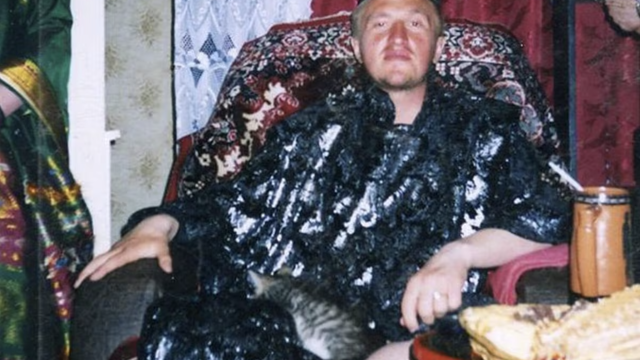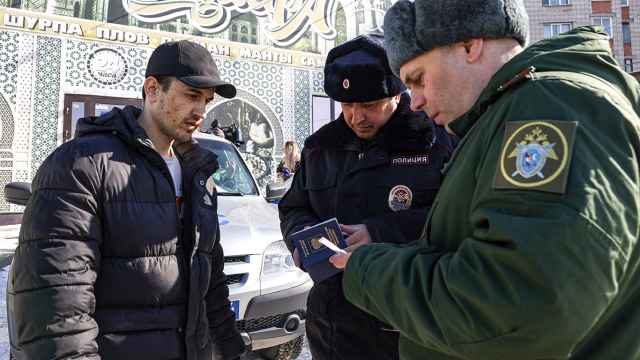Deputy Foreign Minister Sergei Ryabkov said progress has been made with the United States in talks on a deal to replace the Nunn-Lugar weapons reduction program, which is set to expire in June, a news report said Friday.
The U.S. assistant secretary of state for arms control, Rose Gottemoeller, traveled to Moscow last week for negotiations on the issue, and Ryabkov said that while there were no "breakthroughs," the two sides were "moving forward."
"We haven't reached the final station, when everyone must exit the cars, sit at the table, take each others' hands and sign something," he told Kommersant.
Under the Cooperative Threat Reduction program, created by the 1992 Nunn-Lugar Act, the U.S. government has paid defense contractors to secure and dismantle weapons of mass destruction and their infrastructure in the former Soviet Union.
Moscow announced in October that it would not prolong the program, saying it was outdated in its current form and reduces Russia to aid recipient status.
Gottemoeller concluded a four-day trip to Moscow on Friday dedicated to talks on nonproliferation and arms reduction. The visit was shrouded in secrecy, with the U.S. Embassy refusing to comment on it Wednesday except to say the assistant secretary would make no public appearances.
According to one Russian official, less headway was achieved during talks on a deal for bilateral nuclear arms reductions that the U.S. is seeking because of disagreements over a U.S. missile defense shield in Eastern Europe.
"For us, the missile defense is a fundamental issue. Without an agreement in that area, Russia will not agree to further cuts," an unidentified Foreign Ministry official told Kommersant.
Ryabkov said Friday that the talks with Gottemoeller touched on the missile shield, which Moscow fears could eventually neutralize Russia's nuclear deterrent, and that Russia had not changed its position on the issue.
But negotiations on it "absolutely will continue," he said in an interview with Interfax.
Foreign Ministry spokesman Alexander Lukashevich said Thursday that Russia had not received any American proposals regarding further nuclear arms reductions. The White House reportedly wants to cut deployed nuclear weapons to about 1,000, down from the current target of 1,550 by 2018 stipulated in the New START treaty, which went into effect in February 2011.
Contact the author at e.pfeifer@imedia.ru
A Message from The Moscow Times:
Dear readers,
We are facing unprecedented challenges. Russia's Prosecutor General's Office has designated The Moscow Times as an "undesirable" organization, criminalizing our work and putting our staff at risk of prosecution. This follows our earlier unjust labeling as a "foreign agent."
These actions are direct attempts to silence independent journalism in Russia. The authorities claim our work "discredits the decisions of the Russian leadership." We see things differently: we strive to provide accurate, unbiased reporting on Russia.
We, the journalists of The Moscow Times, refuse to be silenced. But to continue our work, we need your help.
Your support, no matter how small, makes a world of difference. If you can, please support us monthly starting from just $2. It's quick to set up, and every contribution makes a significant impact.
By supporting The Moscow Times, you're defending open, independent journalism in the face of repression. Thank you for standing with us.
Remind me later.





